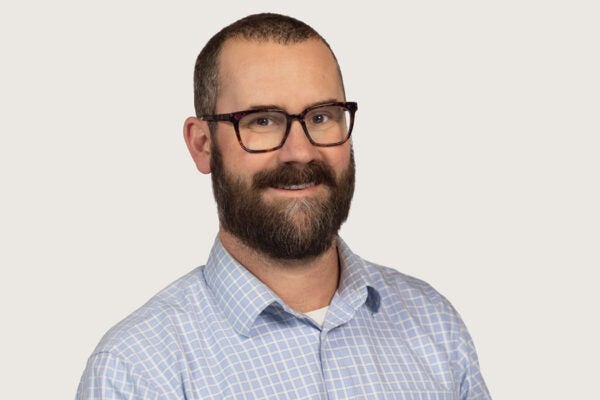What is the role of librarians, archivists, media trainers, and other information professionals in fostering a healthy digital world for the next generation?
That’s the question I want to tackle this week, in response to a delightful letter I recently received. This letter addressed my recent JSTOR Daily column, “Yes, Smartphones Are Destroying A Generation, But Not Of Kids.”
The letter came from a group of five graduate students in the Masters of Information Science program at the University of Texas at Austin. The students are taking Professor Amelia Acker’s course on Information in Social and Cultural Context, which included a unit about how screens are affecting the reading habits of young people. My earlier article, which addressed the recurring alarm over kids and screen time, talked about the importance of parents guiding kids’ screen habits as digital mentors. Here’s what Prof. Acker’s students still want to know:
[W]e were left wondering how to best serve as digital mentors in our role as information professionals. How can we practically bring these values into institutional spaces such as archives, libraries, community organizations, and cultural centers? Furthermore, do you believe these attitudes on parenting could, or will, change based on technological innovations? Many articles on parenting and technology focus on age differences. How do you think other cultural and identify factors such as race, gender, class and disability inform parents’ relationships and attitudes towards technology?
It’s a complex set of questions, so let me start by saying I feel a tiny bit more hopeful about the future of our species if today’s information science students are thinking about how they can work to foster profound digital literacy across difference. Maybe we’re not doomed, after all!
Why Parents Aren’t Always the Best Digital Mentors
The letter I received from the five Masters of Information Science students—oh, I have to call them the MI-5—highlights a huge obstacle to cultivating a healthy digital experience and culture among the young people who are now growing up online. Many of the principles and practices that make for effective offline engagement are based on wisdom and habits that have been passed down from generation to generation. But the mentorship that young people require online calls for a new type of wisdom: a wisdom that can be informed by knowledge of the pre-digital world, but which also needs to draw on digital experience and expertise.
And the truth is, not all parents are in the same position to provide that kind of mentorship. In part, that’s because parents have enormous discrepancies in their level of tech expertise and comfort—though mentorship truly is less about tech expertise than about actually engaging in conversation with kids about what they’re doing online, and why.
But there is a whole other type of digital divide, beyond the simple divide in who has access to devices and connectivity, created by the very differences the MI-5 allude to in their letter. Class differences mean some kids have parents who have money to enroll them in tech camps and the time to talk with them about their online activities, while others have parents working a second shift and hoping their kids stay out of trouble on Snapchat.
Disability—either the parent or the child’s—can make technology even more essential for learning, socialization, and daily life, but it can also make the work of digital mentorship far more demanding (as you’ll gather if you read anything about the screen struggles I’ve had with my autistic son.) Gender and race differences mean some kids face much higher risks online—like being bullied or targeted based on their gender or color. That raises the stakes for digital mentorship, because we’re now asking parents to help their kids navigate terrain that big tech providers like Facebook and Twitter struggle to address.
Librarians and Information Professionals as Role Models
It’s crucial that the work of mentorship take place beyond the imperfect and unequal world of private families, and extend into the spaces that can level the playing field: the libraries, community organizations, and cultural centers referenced by the MI-5. (I kind of want to pack my 14-year-old into a suitcase right now, and send them off to Austin to see what the 5 can do for their digital smarts.)
But that’s tricky, because a lot of what effective mentor parents do (establishing screen agreements, modelling appropriate tech usage, observing the impact of different kinds of online activities) is outside the purview of your friendly neighborhood librarian, community media trainer, or cultural programmer. Libraries and community organizations can provide training and guidance for parents who want to become digital mentors—in fact, a number of library groups have had me deliver just that kind of workshop—but at the end of the day, that particular sort of mentorship work needs to get done in the sustained context of parent-child, teacher, or counselling relationships.
That still leaves a whole lot on the table for the MI-5 and other future-minded information professionals. The obvious starting point: Digital learning and literacy. Libraries, community centers, and media centers already offer lots of digital skills training; these programs are crucial resources for helping young people develop the hard skills they need to function effectively in the digital world.
But information professionals can go well beyond the basics of software training by offering programming and activities that help shift kids from being passive technology consumers and towards being active technology maker-creators. That work is going to have even greater impact if it’s not constrained to the physical space of a few publicly funded institutions, as Linda W. Braun points out in her thoughtful article about virtual outreach. I love this hypothetical example from her article:
Ask tweens and teens to create Vine videos as part of a STEM moviemaking program. You provide the program information virtually and allow youth to participate without setting foot in the library. While they are taking part in the program, you communicate with them using Twitter, Facebook, Google apps and other web-based tools—of course, providing digital literacy and technology tips along the way.
What I love about this example is that it also shows how information professionals can use digital literacy training to become digital mentors in a more robust sense. By delivering programming online, you end up interacting with young patrons through the very digital channels that they need to use responsibly. (And ok, Vine is no longer among them, but just substitute Instagram if you’re getting hung up on that detail.)
Once you’re engaging with patrons online, as well as face-to-face, you have the opportunity to model responsible online interaction, and offer your young patrons a window on what it means to live well online. Too many young people from all walks of life only see the online behavior of their peers, and class or cultural barriers may further narrow youth exposure to engaging examples of meaningful online participation. As a parent, I would love my tween and teen to model their social media engagement on my Facebook usage (well, maybe not my usage—I’m a bit compulsive), but even I have to admit that a young, tech-savvy librarian or media trainer is a much more appealing model than boring old Mom.
Role modelling works at both the individual and institutional level. I would love to see kids friending and imprinting on hip young media activists and librarians—please, someone launch a Have You Friended a Librarian Today? campaign! But not every information professional wants to connect with a bunch of teens on social media, and even if they did, there aren’t enough of them to go around.
Digital Mentoring at the Institutional Level
This is why it’s so crucial to see that modelling operate at an institutional level. Make sure that all the online interactions your institution has with its patrons —and especially, those patrons under 18—encourage the kinds of habits people should practice in all their online activities. It can be tempting to think that since we’re on the side of the angels, community institutions can play a little fast and loose with personal information. But a library is actually the last institution that should be sending out spammy bulk emails, or aggregating user data based on borrowing habits: that’s just cuing patrons (including your youngest patrons) that we don’t regard personal information as sacrosanct. If we’re trying to mentor young tech users, we need to teach them to respect their own privacy, and to be suspicious of any institution that doesn’t take that privacy very seriously indeed.
A more tricky issue for role modelling concerns the role of libraries in limiting or moderating what young people access. Many libraries use internet filtering software to prevent patrons from accessing inappropriate content through their facilities. And at first, this might seem like an extension of the mentoring role: after all, many parents (myself included) use internet filters to manage their kids’ internet access. But Junichi P. Semitsu’s thoughtful article, “Burning Cyberbooks in Public Libraries: Internet Filtering Software vs. The First Amendment,” establishes a useful distinction between the kind of guidance a parent can provide, and what a library (or other public institution) can undertake:
A library’s policy should continue to reflect the idea that the fundamental responsibility to protect minors from harmful materials should rest with parents, not local librarians. Just as parents have been responsible for ensuring that their children do not look at sex education books in the adult section, parents must also be responsible for ensuring that children do not learn their sex education from www.hardcoresex.com. Libraries should assist parents by offering self-enforcing tools like optional filters. However, they should maintain their tradition of staying out of the business of censorship.
Semitsu’s distinction speaks to the tricky line information professionals need to walk when they take on the mantle of digital mentorship. On the one hand, young people benefit from mentoring that includes limit-setting as well as tech empowerment—that’s exactly why mentor parents often dole out screen time limits along with tech lessons. On the other, young people who encounter mentors at their local library or media centre are also experiencing their first points of contact with public institutions and media; in this respect, information professionals have a unique role in teaching young people what they can and should expect as online citizens. That means their engagement with young patrons must ultimately be guided more by e pluribus unum than by in loco parentis.
If information professionals play a profound role in transmitting what young digital citizens should expect, as well as in teaching them how they can participate and contribute, that mentorship role need not be limited to online interactions or digital trainings. It’s important to note that information professionals transmit cultural norms around information access and privacy—both essential issues for young tech users—in their offline activities, too. In their article on the privacy implications of libraries shifting to self-service holds, Stevens et al. note that:
When books are kept on self-service hold shelves in such a way that anyone who chooses to peruse the hold shelves (including someone who may simply be looking for a requested item) can match the title of the book with the name of the person who requested the book, there is a disclosure of private information relating to a patron. It is the equivalent of leaving copies of patrons’ circulation records in the open where anyone can view them.
This case beautifully demonstrates both the power and the peril of taking on the role of digital mentorship as an information professional. Everything a librarian, archivist, or community media trainer does is part of what they are teaching to the young people who tap into their lessons or services. That means that information professionals need to be exceptionally aware of what they are modelling, not only when they are thinking actively about mentorship, but when they are going about very aspect of their jobs (or even their after-hours online lives, if they’re connecting to young patrons).
And yet, that broad reach also makes them uniquely suited to the job of digital mentorship. As Glynda A. Hull notes in “At Last: Youth Culture and Digital Media: New Literacies for New Times,”
Given the pressure to teach to state-mandated content standards and to test students’ academic achievement defined as meeting those standards, and given the way in which such activities are tied to federal and state funding, teachers and schools are now very hard pressed to find space and time to think expansively about the interface of literacy, youth culture, multi-media, and identity.
That’s exactly why we need information professionals to take on the work of digital mentorship when teachers or parents are unable—or unwilling—to do it. The institutional roles, digital skills, and community mandate of information professionals mean they’re often the ideal people to fill in the gaps between what kids are learning from their schools and parents, and what they’re teaching one another. Thanks to the MI-5, I have high hopes that the next generation of information professionals will step up to do just that.







